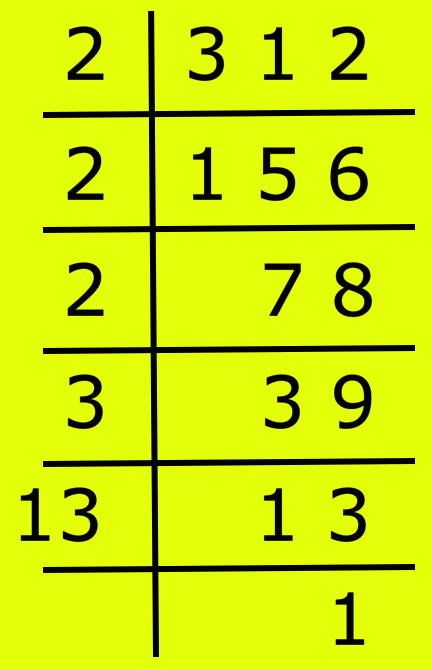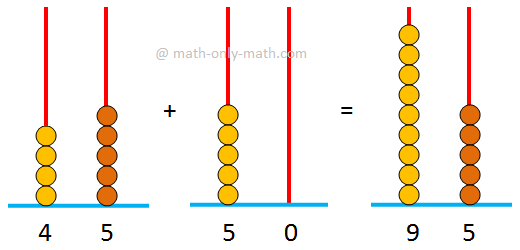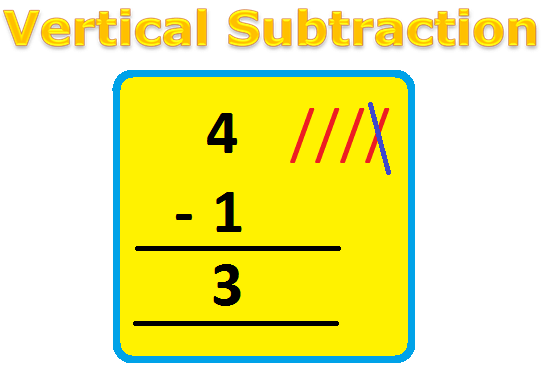Application Problems on Expansion of Powers of Binomials and Trinomials
Here we will solve different types of application problems on expansion of powers of binomials and trinomials.
1. Use (x ± y)2 = x2 ± 2xy + y2 to evaluate (2.05)2.
Solution:
(2.05)2
= (2 + 0.05)2
= 22 + 2 × 2 × 0.05 + (0.05)2
= 4 + 0.20 + 0.0025
= 4.2025.
2. Use (x ± y)2 = x2 ± 2xy + y2 to evaluate (5.94)2.
Solution:
(5.94)2
= (6 – 0.06)2
= 62 – 2 × 6 × 0.06 + (0.06)2
= 36 – 0.72 + 0.0036
= 36.7236.
3. Evaluate 149 × 151 using (x + y)(x - y) = x2 - y2
Solution:
149 × 151
= (150 - 1)(150 + 1)
= 1502 - 12
= 22500 - 1
= 22499
4. Evaluate 3.99 × 4.01 using (x + y)(x - y) = x2 - y2.
Solution:
3.99 × 4.01
= (4 – 0.01)(4 + 0.01)
= 42 - (0.01)2
= 16 - 0.0001
= 15.9999
5. If the sum of two numbers x and y is 10 and the sum of their squares is 52, find the product of the numbers.
Solution:
According to the problem, sum of two numbers x and y is 10
i.e., x + y = 10 and
Sum of the two numbers x and y squares is 52
i.e., x2 + y2 = 52
We know that, 2ab = (a + b)2 – (a2 + b2)
Therefore, 2xy = (x + y)2 - (x2 + y2)
⟹ 2xy = 102 - 52
⟹ 2xy = 100 - 52
⟹ 2xy = 48
Therefore, xy = 12 × 2xy
= 12 × 48
= 24.
6. If the sum of three numbers p, q, r is 6 and the sum of their squares is 14 then find the sum of the products of the three numbers taking two at a time.
Solution:
According to the problem, sum of three numbers p, q, r is 6.
i.e., p + q + r = 6 and
Sum of the three numbers p, q, r squares is 14
i.e., p2 + q2+ r2= 14
Here we need to find the value of pq + qr + rp
We know that, (a + b + c)2 = a2 + b2 + c2 + 2(ab + bc + ca).
Therefore, (p + q + r)2 = p2 + q2 + r2 + 2(pq + qr + rp).
⟹ (p + q + r)2 - (p2 + q2 + r2) = 2(pq + qr + rp).
⟹ 62 - 14 = 2(pq + qr + rp).
⟹ 36 – 14 = 2(pq + qr + rp).
⟹ 22 = 2(pq + qr + rp).
⟹ pq + qr + rp = 222
Therefore, pq + qr + rp = 11.
7. Evaluate: (3.29)3 + (6.71)3
Solution:
We know, a3 + b3 = (a + b) 3 – 3ab(a + b)
Therefore, (3.29)3 + (6.71)3
= (3.29 + 6.71)3 – 3 × 3.29 × 6.71(3.29 + 6.71)
= 103 – 3 × 3.29 × 6.71 × 10
= 1000 - 3 × 220.759
= 1000 – 662.277
= 337.723
14. If the sum of two numbers is 9 and the sum of their cubes is 189, find the sum of their squares.
Solution:
Let a, b are the two numbers
According to the problem, sum of two numbers is 9
i.e., a + b = 9 and
Sum of their cubes is 189
i.e., a3 + b3 = 189
Now a3 + b3 = (a + b) 3 – 3ab(a + b).
Therefore, 93 – 189 = 3ab × 9.
Therefore, 27ab = 729 – 189 = 540.
Therefore, ab = 54027 = 20.
Now, a2 + b2 = (a + b)2 – 2ab
= 92 – 2 × 20
= 81 – 40
= 41.
Therefore, the sum of the squares of the numbers is 41.
From Application Problems on Expansion of Powers of Binomials and Trinomials to HOME PAGE
Didn't find what you were looking for? Or want to know more information about Math Only Math. Use this Google Search to find what you need.
Recent Articles
-
5th Grade Factors and Multiples | Definitions | Solved Examples | Math
Mar 23, 25 02:39 PM
Here we will discuss how factors and multiples are related to each other in math. A factor of a number is a divisor which divides the dividend exactly. A factor of a number which is a prime number is… -
Adding 2-Digit Numbers | Add Two Two-Digit Numbers without Carrying
Mar 23, 25 12:43 PM
Here we will learn adding 2-digit numbers without regrouping and start working with easy numbers to get acquainted with the addition of two numbers. -
Worksheet on 12 Times Table | Printable Multiplication Table | Video
Mar 23, 25 10:28 AM
Worksheet on 12 times table can be printed out. Homeschoolers can also use these multiplication table sheets to practice at home. -
Vertical Subtraction | Examples | Word Problems| Video |Column Method
Mar 22, 25 05:20 PM
Vertical subtraction of 1-digit number are done by arranging the numbers column wise i.e., one number under the other number. How to subtract 1-digit number vertically? -
Worksheet on 11 Times Table | Printable Multiplication Table | Video
Mar 22, 25 05:08 PM
Worksheet on 11 times table can be printed out. Homeschoolers can also use these multiplication table sheets to practice at home.






New! Comments
Have your say about what you just read! Leave me a comment in the box below. Ask a Question or Answer a Question.